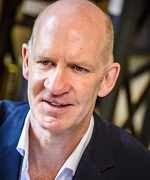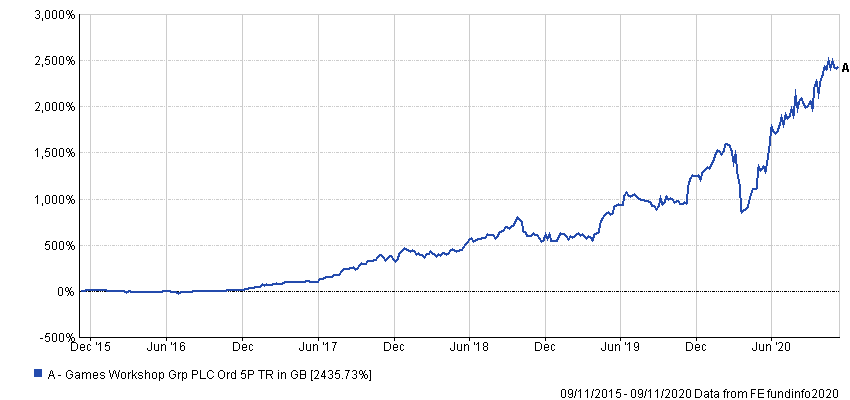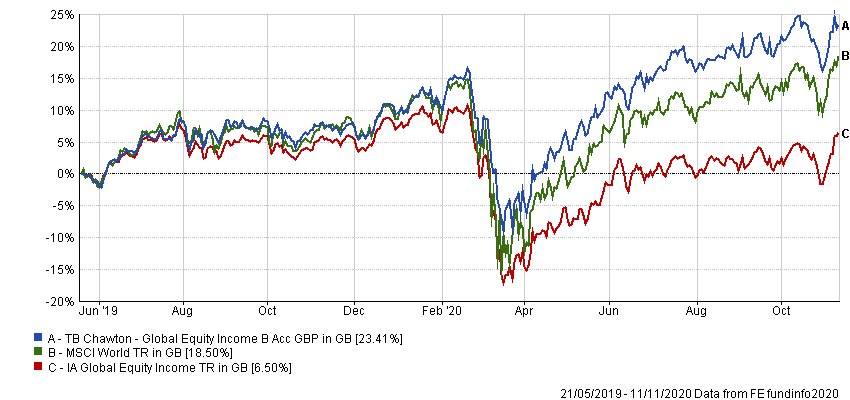Many investors entrust their money to a fund manager in the expectation they will do everything they can to unearth “The Next Big Thing”. 
However, Michael Crawford (pictured), manager of the TB Chawton Global Equity Income fund, thinks that what is more important than finding game-changing stocks is ensuring you don’t sell out if you happen to own one already.
As a result, he spends 80 per cent of his time focusing on stocks he already holds.
“I think that’s in contrast to many other managers who spend a lot of time on new ideas which are always going to appear fresh and interesting, but that plays against long-term investment,” said Crawford.
“What we’re trying to do in that context is separate short-term noise like quarterly earnings from relevant developments.
“We are constantly trying to gather more information and understand [each stock’s] industry in more detail and how, in particular, technology is affecting it.”
TB Chawton Global Equity Income is aimed at people who are still in the capital growth stage of investment but who are considering increasing their exposure to income-payers as they approach retirement. As a result, the fund will not deliver a high starting yield to investors – this currently stands at just 1.49 per cent – but Crawford’s process aims to ensure this figure will grow over time.
The manager holds both mature dividend-paying companies and those in an earlier stage of their progress that are retaining cash to fund further growth.
Whichever camp they fall into, they must fit in with the three tenets of his philosophy, the first of which is based on the importance of return on invested capital.
“There is a Charlie Munger [of Berkshire Hathaway] comment that particularly resonates with me,” said Crawford, “which is, if a business earns 18 per cent on capital over 20 or 30 years, even if you pay an expensive looking price, you’ll end up with one hell of a result.”
Capital allocation is equally important, with the manager pointing out that even if you start with two companies that both deliver a high return on capital, you can end up with very different results depending on how they invest their spare cash into their business.
Finally, he prefers to invest in businesses that are going to be around for decades.
“Sustainability is absolutely vital,” he continued. “The way we look at this is really in terms of, are they borrowing from future earnings to support current earnings? Clearly within that context, environmental issues are vital at the moment, but also social and governance issues as well.”
In terms of his sell discipline, Crawford uses the publication of a holding’s annual report to perform a one- to three-week assessment.
The manager will look at the business from the perspective of a new entrant into its market or a short seller looking to attack, selling out if an issue arises that challenges his view.
Another reason would be if a company allocates capital in an inefficient manner, such as through taking on large amounts of debt to fund an acquisition of little obvious benefit.
However, he would be unlikely to sell out of a company just because it is regarded as expensive.
“I strongly believe that many fund managers spend far too long valuing their holdings,” Crawford continued.
“If you are a holding company, you don’t go around every quarter valuing all of your subsidiaries and selling some because they appear a little expensive.
“Also, I think valuation is misunderstood in the way people will actually go about it. We do value companies in that annual review. But we take a much more long-term view of what they may be worth. We’re trying to factor in longevity, 10 to 20 years of growth, so we do sell but it’d be a rare occurrence that we sell purely on valuation.”
Performance of Games Workshop over 5yrs

Source: FE Analytics
The manager said a good example of a stock that has been wrongly labelled as “overvalued” is Games Workshop. The stock is up more than 2,400 per cent over the past five years and is trading on a P/E (price-to-earnings) multiple approaching 50x.
However, Crawford said he ignores such metrics: “What we’re trying to do is say, will this company deliver a certain level of growth and return on capital and so forth over the next 10 years?
“It does look awfully expensive and it might be that it takes three or four years of progress to start looking optically sensible. But we’re not looking at that. We believe this company has a sort of 10-year future. It could conceivably start to throw off a year of lower growth and fall 20 to 30 per cent, but that wouldn’t worry us. We still think it is going to get to a significantly higher level over our period of investment.”
Performance of fund vs sector & benchmark since launch

Source: FE Analytics
Data from FE Analytics shows TB Chawton Global Equity Income has made 23.41 per cent since launch in May 2019, compared with gains of 6.5 per cent from its IA Global Equity Income sector and 18.5 per cent from the MSCI World index.
The £9.8m fund is yielding 1.5 per cent and has ongoing charges of 1.29 per cent.






